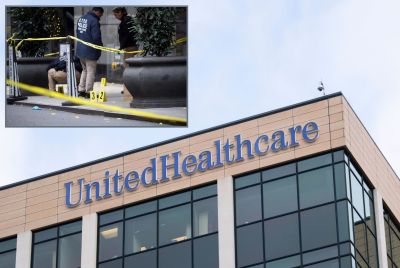Germany says EU concerns don't endanger Opel deal
Economy Minister Karl-Theodor zu Guttenberg expressed confidence on Saturday that Germany could address EU concerns about a sale of carmaker Opel to Canada's Magna, saying they did not put the deal at risk.
The European Commission announced late on Friday that Competition Commissioner Neelie Kroes had written to Guttenberg voicing doubts about Germany's offer to provide 4.5 billion euros ($6.7 billion) in financial aid for Opel as part of the deal with Magna.
In the letter, Kroes said there were significant indications that Germany had made the aid for Opel contingent on Magna being chosen as the winning bidder -- a stance that would run counter to EU competition rules.
Speaking to reporters in Berlin on Saturday morning, Guttenberg said the deal was on track and voiced confidence that Germany could resolve the questions raised by Kroes.
Asked whether her concerns could doom the sale to Magna, he replied: No, I don't believe that.
Magna, a car parts group whose bid for Opel is backed by Russian investors, had been in competition with private equity investor RHJ International, and before that with Fiat and China's BAIC, for control of the General Motors unit. RHJ was not immediately available for comment.
But the German government said repeatedly it had a clear preference for the Magna bid as it offered Opel the most promising future and would protect German jobs.
It linked its offer of 4.5 billion euros in aid for Opel to a Magna takeover, with Chancellor Angela Merkel promising to intervene, if necessary, to ensure Magna won the bid battle.
Under pressure from Germany, GM chose Magna as its preferred bidder last month. Under a deal that had been expected to be signed this week but was delayed amid EU doubts, GM plans to sell a 55 percent stake in Opel to Magna and Russian state-owned bank Sberbank.
GM would retain a 35 percent stake in Opel under the deal and workers would hold the remaining 10 percent.
ROADBLOCK?
Kroes said GM and the trust set up to keep Opel separate from its U.S. parent's recent bankruptcy in the United States should be allowed to reconsider the decision to sell to Magna.
GM and the Opel Trust should be given the opportunity to reconsider the outcome of the bidding process, Kroes said in the statement.
If GM is forced to reopen the bidding for Opel, or the closing of the deal faces significant delays, Opel could face a cash crunch based on previous projections by the automaker.
GM is very fragile. An Opel bankruptcy and loss of numerous jobs is a realistic scenario if the sale is stopped, said Ferdinand Dudenhoeffer, an auto expert at Duisburg-Essen University.
Although the European Commission's official term ends this month, Kroes will still be able to take action in cases such as Opel in the interim period before the new EU executive is appointed early next year.
But she has yet to block a state aid deal during the economic crisis, nearly all of which were to rescue banks.
In the case of Commerzbank, for example, she ordered the sale of a business the lender itself was keen to offload as a condition for getting government help.
But experts warned the threat on Opel could derail the deal.
If Kroes' major concern is that others have an equal opportunity to bid and to benefit from state aid from the German government, then this constitutes a major roadblock, said antitrust lawyer Martin Bechtold at Allen & Overy.
A GM spokesman said completing the Opel sale would require the German government to win clearance for its proposed financing and for union workers to agree to cost cuts.
Opel employs about 50,000 workers in Europe. About half are in Germany and other plants are in Britain, Belgium, Poland and Spain.
Klaus Franz, head of Opel's works council in Germany, echoed Guttenberg's comments, saying he did not believe the EU's doubts changed the situation. Juergen Ruettgers, premier of the German state of North Rhine-Westphalia, home to an Opel plant, insisted the agreement did not contravene EU rules.
No site was given favorable treatment in the plan -- either in Germany or elsewhere, he told reporters.
(Additional reporting by Foo Yun Chee, John O'Donnell Phil Blenkinsop, Alexander Huebner and Dave Graham)
(Writing by Noah Barkin; Editing by Toby Chopra)
© Copyright Thomson Reuters 2024. All rights reserved.





















